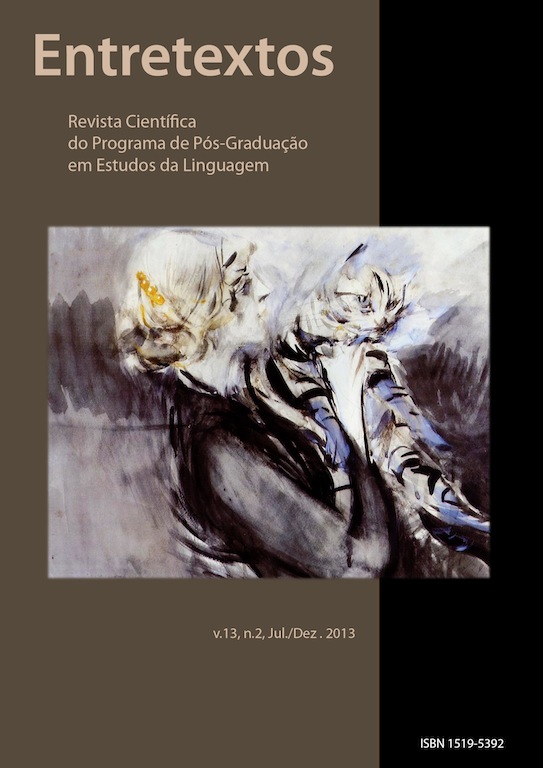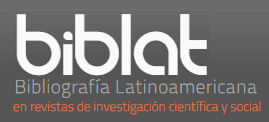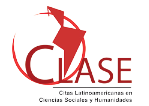Language conceptions: Portuguese grammar and mother tongue teaching
DOI:
https://doi.org/10.5433/1519-5392.2013v13n2p243Keywords:
Grammar, Conceptions of language, EducationAbstract
The language is heterogeneous, variable, socio-historically constituted, however, not always this view prevails in daily practice in the classrooms. Many teachers follow what is prescribed by the grammar rules, disregarding the mutability of language, presenting the "right" as opposed to "wrong" in their mother tongue. In this paper, we base our discussion on the assumptions of historical linguistics and sociolinguistics, with the objective of investigate the conceptions of language that permeated the school at the beginning of the XIX century from the analysis of grammar rules of Portuguese Rocha Lima. For this, we contextualize the situation of the Portuguese language in Brazil and its teaching since colonization, the role of the Jesuits to the consolidation of education in Brazilian lands. We comment briefly the concepts of language based on the work developed by Geraldi (1984), Perfect (2004, 2005, 2007), Travaglia (2009). For discussions about the Brazilian linguistic heterogeneity and implications for teaching language, consider the studies Castilho (1998, 2002, 2010), Camacho (1988), Ilari and Basso (2011), Mattos e Silva (2004). We observed with the corpus analysis that despite the introduction presents indications mentions the heterogeneous and variable language, the author remains stuck to prescriptivism, whereas, according to the conception of language as an expression of thought, the rules of good use of language those present in the literary works of classical authors.References
CAMACHO, Roberto Gomes. A variação lingüística. In: SÃO PAULO. Secretaria de Educação. Coordenadoria de Estudos e Normas Pedagógicas. Subsídios à Proposta Curricular de Língua Portuguesa para os 1º e 2º graus: coletânea de textos. São Paulo: SE/CENP, 1988. v. 1. p. 29-41.
CASAGRANDE, Nancy dos S. A implantação da língua portuguesa no Brasil do século XVI: um percurso historiográfico. São Paulo: EDUC, 2005.
CASTILHO, Ataliba Teixeira de. Nova gramática do português brasileiro. São Paulo: Contexto, 2010.
CASTILHO, Ataliba Teixeira de. Variação dialetal e ensino institucionalizado da língua portuguesa. In: BAGNO, Marcos (org.). Linguística da norma. São Paulo: Loyola, 2002.
FARACO, Carlos Alberto. Norma-padrão brasileira: desembaraçando alguns nós. In: BAGNO, Marcos (org.). Linguística da norma. São Paulo: Loyola, 2002.
FARACO, Carlos Alberto. Linguística histórica: uma introdução ao estudo da história das línguas. São Paulo: Parábola, 2005.
FÁVERO, Leonor Lopes. As concepções linguísticas no século XVIII: a gramática portuguesa. Campinas-SP: UNICAMP, 1996.
GERALDI, João Wanderley (org.). O texto na sala de aula: leitura e produção. 2. ed. Cascavel: ASSOESTE, 1984.
ILARI, Rodolfo; BASSO, Renato. O português da gente: a língua que estudamos – a língua que falamos. São Paulo: Contexto, 2006.
MATTOS e SILVA, Rosa Virgínia. Ensaios para uma sócio-história do português brasileiro. São Paulo: Parábola Editorial, 2004.
MATTOS e SILVA, Rosa Virgínia. Contradições no ensino de português: a língua que se fala a língua que se ensina. 6. ed. São Paulo: Contexto, 2003.
MATTOS e SILVA, Rosa Virgínia. Tradição gramatical e gramática tradicional. 2. ed. São Paulo: Contexto, 1994. Col. Repensando a língua portuguesa.
NEVES, Maria Helena de Moura. Gramática de usos do português. São Paulo: Humanitas/FAPESP, 2000.
PEREIRA, Rosimeri da Silva. As reformas educacionais do século XX e a disciplina língua portuguesa – entre o ensino clássico e o moderno. (s.d). Disponível em: histedbr.fae.unicamp.br. Acesso em: 29 nov. 2012.
PERFEITO, Alba Maria. Concepções de linguagem, teorias subjacentes e ensino de língua portuguesa. In: SANTOS A. R.; RITTER, L. C. B. (org.) Concepções de linguagem e ensino. Maringá: EDUEM, 2005. (Formação do professor. EAD 18). v. 1, p. 27-79.
PERFEITO, Alba Maria. Concepções de linguagem e análise linguística: diagnóstico para propostas de intervenção. In: Congresso latino-americano sobre formação de professores de línguas, 1., Florianópolis, 2007. Anais... Florianópolis, UFSC, 2007. p. 824-836.
PERFEITO, Alba Maria; Cecilio, Sandra Regina; Costa-Hübes Terezinha da Conceição. Leitura e análise linguística: diagnóstico e proposta de intervenção. Acta Sci. Human Soc. Sci. Maringá, v. 29, n. 2., p. 137-149, 2007.
ROCHA LIMA, Carlos Henrique. Gramática normativa da língua portuguesa. Rio de Janeiro: Livraria José Olympo Editora, 1974.
SALOMÃO, Ana Cristina Biondo. Variação e mudança linguística: panorama e perspectiva da sociolinguística variacionista no Brasil. Florianópolis: Fórum linguístico, 2011. v. 8. n. 2. Disponível em: http://dx.doi.org/10.5007/1984-8412.2011v8n2p187, acesso em 12 fev. 2013.
TRAVAGLIA, Luiz Carlos. Gramática e interação: uma proposta para o ensino de gramática. 14. ed. São Paulo: Cortez, 2009.
Downloads
Published
How to Cite
Issue
Section
License
Entretextos adota a Licença Creative Commons Attribution 4.0 International, portanto, os direitos autorais relativos aos artigos publicados são do(s) autor (es), que cedem à Entretextos o direito de exclusividade de primeira publicação.
Sob essa licença é possível: Compartilhar - copiar e redistribuir o material em qualquer suporte ou formato. Adaptar - remixar, transformar, e criar a partir do material, atribuindo o devido crédito e prover um link para a licença e indicar se mudanças foram feitas.




















